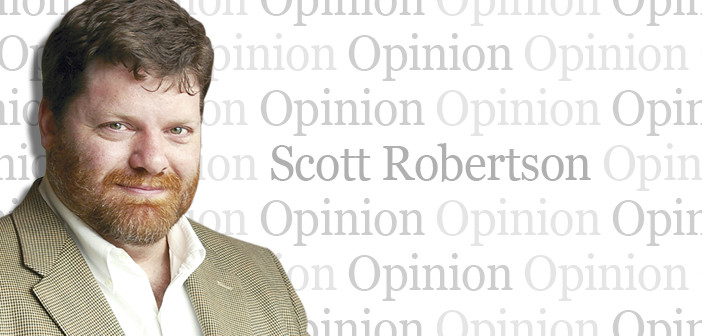By Scott Robertson
President Trump has been a man of action in the last few months. He deserves credit for that. He’s kept some promises. He deserves credit for that. But he also has to deal with the ill-effects of some of those actions.
The president came into office believing his deal-making skills would serve him well. But he was a hotel developer who had also sold his name to a bunch of companies that made various products. He personally was never in the business of manufacturing products or he would have realized that government makes a product he’d have to deal with: unintended consequences.
One thing the president is learning is that economists often do know what they’re talking about. The economist Thomas Sowell once pointed out, “There are no solutions, only trade-offs.” That’s especially true when the government tries to solve a problem. It may actually solve the problem it sets out to solve, but, as the president is learning, it often creates a new spate of problems in the process. That’s the trade-off: old problems for new ones.
Take the imposition of tariffs on trading partners in the aluminum and steel markets for example. The president, on March 7, said the administration would be imposing the tariffs on China and other trading partners. The next day, he announced details.
The president tweeted that the US steel and aluminum industries, “have been decimated by decades of unfair trade and bad policy with countries from around the world. We must not let our country, companies and workers be taken advantage of any longer. We want free, fair and SMART TRADE!”
But four days ago, the president took to Twitter again, seeming suddenly concerned about Chinese workers as much as Americans. “President Xi of China, and I, are working together to give massive Chinese phone company, ZTE, a way to get back into business, fast. Too many jobs in China lost. Commerce Department has been instructed to get it done!”
So, we put tariffs in place to make China pay for unfair trade taking advantage of our workers, but when China’s workers suffer, we have to undo those tariffs? In essence, that tweet says, “Chinese president has told me our tariffs are doing what we wanted them to do. MUST STOP! Commerce Dept. must save Chinese jobs! From us!”
Why would the president reverse course and tell the US Department of Commerce it must save jobs at a Chinese company? Because the unintended consequences of placing those tariffs on Chinese products was that China raised tariffs on ours in return, and American farmers have been telling their congressmen – and the White House – all about it.
Monday, the Wall Street Journal reported the president agreed to lift the tariffs on China’s ZTE Corp., in exchange for China lifting its newly announced tariffs on several American agricultural products, including pork and apples.
The president isn’t worried about employees at ZTE Corp. He’s worried that American farmers will be negatively impacted by tariffs in the Chinese marketplace. And he should be. The bigger issue is that he should have been aware of that possibility before he started a trade war in the first place. Now he looks weak, pulling back after having made grandiose statements about protecting American steel jobs. He has allowed China to push him into a choice of protecting certain American interests at the cost of others in a very public way.
It should be noted that nobody has yet mentioned protecting soybean farmers. Tennessee’s economy could be directly impacted by soybean tariffs. Soybeans are Tennessee’s top cash crop, and China is the state’s No. 1 buyer.
The back-and-forth on tariffs isn’t the only place where the president faces a learning curve on unintended consequences. Trump ran on a promise of eliminating the tax-and-spend mindset in Washington.
But the $1.5 trillion December tax cut and corresponding $1.3 trillion budget created a new mindset: Tax less and spend more.
The unintended consequence of that is that even higher taxes will come later.
Economists tell us that tax cuts make the most sense either as an economy slows, in order to stimulate it, or as an economy is coming out of a recession, again as stimulus.
The unintended consequences of politically popular moves like cutting taxes and putting out large budgets (which leave everybody’s sacred cows ungored) include higher deficits and higher interest rates. In the long term, that means the government will not only have more debt, it will have to pay more in interest to get rid of that debt.
So now, just as the president is undoing some of his highly-touted tariffs, he is calling for recission of parts of the budget. The White House says it can cut $15 billion in spending through recission, though the Congressional Office of Management and Budget says the actual figure is about 6 percent of that.
Again, listening to economists who know what they’re talking about ahead of time might have saved the president from having to back-track on these issues. Also, not tweeting how important these things were to do, before undoing them, might have been wise.
With a new president, it’s easy to chalk this up to the learning curve. The key question now is, will the president learn?




